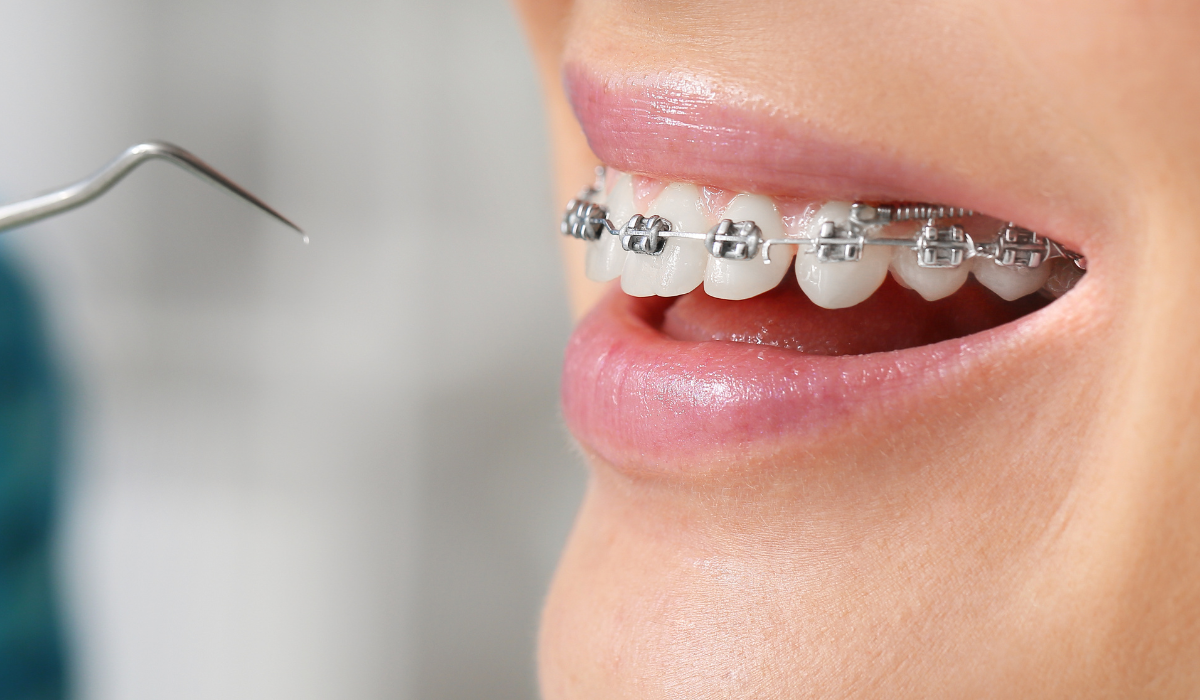How to Sleep with Braces

If you’ve recently gotten braces, you might be wondering how to sleep with them without experiencing discomfort. Sleeping with braces can be challenging, especially during the initial stages when your teeth are still adjusting to the braces. However, with a few adjustments to your sleeping habits and some tips and tricks, you can get a good night’s sleep and wake up feeling refreshed. We’ll share some practical tips on how to sleep with braces comfortably.
How do Braces Affect Your Sleep?
Braces can make sleeping uncomfortable because they put pressure on your teeth and gums. Additionally, the brackets and wires can irritate the inside of your mouth and cause sore spots. When you first get braces, it’s common to experience discomfort while sleeping, and you might wake up with a headache or sore jaw. However, as your teeth adjust to the braces, the discomfort should lessen.
The Best Sleeping Position for Braces
The best sleeping position for braces is on your back. Sleeping on your back reduces the pressure on your teeth and gums and prevents your braces from rubbing against your cheeks and lips. Additionally, sleeping on your back can reduce the risk of snoring and sleep apnea.
Tips for Sleeping with Braces
Here are some practical tips for sleeping with braces:
- Use Pillows for Support
Using pillows for support can help you find a comfortable sleeping position. You can use pillows to elevate your head, support your back, and keep your legs and arms in a comfortable position.
- Drink Water
Drinking water before bed can help keep your mouth moist and reduce the risk of dry mouth. Dry mouth can make sleeping uncomfortable because it increases the risk of bacteria buildup and tooth decay.
- Avoid Hard and Sticky Foods
Avoiding hard and sticky foods can prevent your braces from becoming damaged or dislodged while you sleep. Hard and sticky foods can also get stuck in your braces, which can be uncomfortable and difficult to remove.
- Use Orthodontic Wax
Using orthodontic wax can help reduce the discomfort caused by brackets and wires. Apply a small amount of wax to the brackets or wires that are causing discomfort before bed.
- Follow Your Orthodontist’s Instructions
Following your orthodontist’s instructions can help ensure that your braces are properly maintained and adjusted. Your orthodontist might recommend specific cleaning techniques or adjustments to your braces to ensure that they are working effectively.
How to Clean Your Braces Before Bed
Cleaning your braces before bed can help prevent tooth decay and gum disease. Here’s how to clean your braces before bed:
• Brush your teeth using a soft-bristled toothbrush and fluoride toothpaste.
• Use an interdental brush or floss threader to clean between your braces and teeth.
• Rinse your mouth with water or mouthwash to remove any remaining debris.
Can I sleep on my stomach with braces?
It’s not recommended to sleep on your stomach with braces, as it puts pressure on your face and can cause discomfort. Additionally, sleeping on your stomach can make it more difficult to breathe, especially if you have sleep apnea or other respiratory issues.
Should I wear my retainer while sleeping?
Yes, you should wear your retainer while sleeping, as it helps maintain the alignment of your teeth. Your orthodontist might recommend wearing your retainer full-time during the first few months after getting your braces off, and then transitioning to wearing it only at night.
What should I do if I wake up with a sore spot from my braces?
If you wake up with a sore spot from your braces, you can try using orthodontic wax to cover the bracket or wire that’s causing the irritation. Additionally, rinse your mouth with warm salt water to help reduce inflammation. If the sore spot persists or becomes more painful, contact your orthodontist for advice.
How can I prevent my braces from rubbing against my cheeks and lips while sleeping?
To prevent your braces from rubbing against your cheeks and lips while sleeping, you can try using orthodontic wax on the brackets that are causing irritation. Additionally, you can use a special dental silicone or cotton rolls to help cushion your braces. If the problem persists, talk to your orthodontist about other solutions, such as adjusting your braces or using different types of brackets.
Conclusion
Sleeping with braces can be challenging, but with the right adjustments and habits, you can get a good night’s sleep and wake up feeling refreshed. Remember to sleep on your back, use pillows for support, avoid hard and sticky foods, and follow your orthodontist’s instructions. Additionally, cleaning your braces before bed and wearing your retainer while sleeping can help maintain the alignment of your teeth.
RECENT ARTICLES
